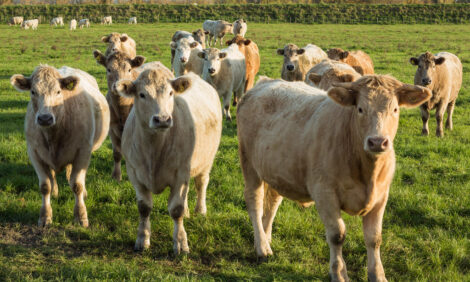



Federal Data Show Meat & Poultry Safe, Says AMI
US - The recently published Pew study misleads consumers about the public health significance of Staphylococcus aureus from food sources, says the American Meat Institute (AMI).A new Pew Commission-funded study misleads consumers about US meat and poultry, which is among the safest in the world, according to AMI.
Authors of the new study, which involved a small number of samples from retail stores, claim that their findings suggest that a significant public health risk exists. However, federal data from the Centers for Disease Control and Prevention (CDC) show steady declines in foodborne illnesses linked to consumption of meat and poultry overall and indicate that human infections with Staphylococcus aureus ('Staph') comprise less than one per cent of total foodborne illnesses.
It is notable that the study involved only 136 samples of meat and poultry from 80 brands in 26 retail grocery stores in five US cities. This small sample is insufficient to reach the sweeping conclusions conveyed in a press release about the study. By contrast, when the US Department of Agriculture studies the prevalence of bacteria, their work involves thousands of samples collected over long periods of time to ensure accuracy.
While the study claims that the many of the bacteria found were antibiotic-resistant, it does note that they are not heat-resistant. These bacteria are destroyed through normal cooking procedures, which may account for the small percentage of foodborne illnesses linked to these bacteria. As with any raw agricultural product, it is important to follow federal safe handling recommendations included on every meat and poultry package that urge consumers to wash hands and surfaces when handling raw meat and poultry and to separate raw from cooked foods to ensure that food is safe when served.
According to a new white paper authored by Ellin Doyle, PhD, of the University of Wisconsin's Food Research Institute, these bacteria are found in half of all human nasal passages – a fact that points to the pervasiveness of this bacteria among people. Dr Doyle's white paper also noted that only two foodborne outbreaks of the antibiotic resistant strain of this bacteria (MRSA) have been identified and both were attributed to food handlers contaminating food – not to the food source itself. S. aureus is also carried by household pets and can be transmitted in health-care settings.
A 2009 US analysis by Louisiana State University researchers published in Applied and Environmental Microbiology concluded that the bacteria occurs at what they characterised as a 'low rate' which the researchers said was "likely due to human contamination".
While the authors of the Pew-funded paper criticise US production methods and suggest that they cause antibiotic-resistant bacteria to develop, Dr Doyle's paper documents that similar incidence patterns can be observed in livestock in many countries with a variety of different production methods. To read Dr Doyle's white paper, click here.
American Meat Institute Foundation President, James H. Hodges, commented: "Despite the claims of this small study, consumers can feel confident that meat and poultry is safe. Federal data show that S. aureus infections in people that are caused by food are uncommon. CDC data also show that foodborne illnesses as a whole are declining due to our growing scientific knowledge about how to target and destroy bacteria on meat and poultry."
Further Reading
| - | Go to our previous news item on this story by clicking here. |
TheCattleSite News Desk


